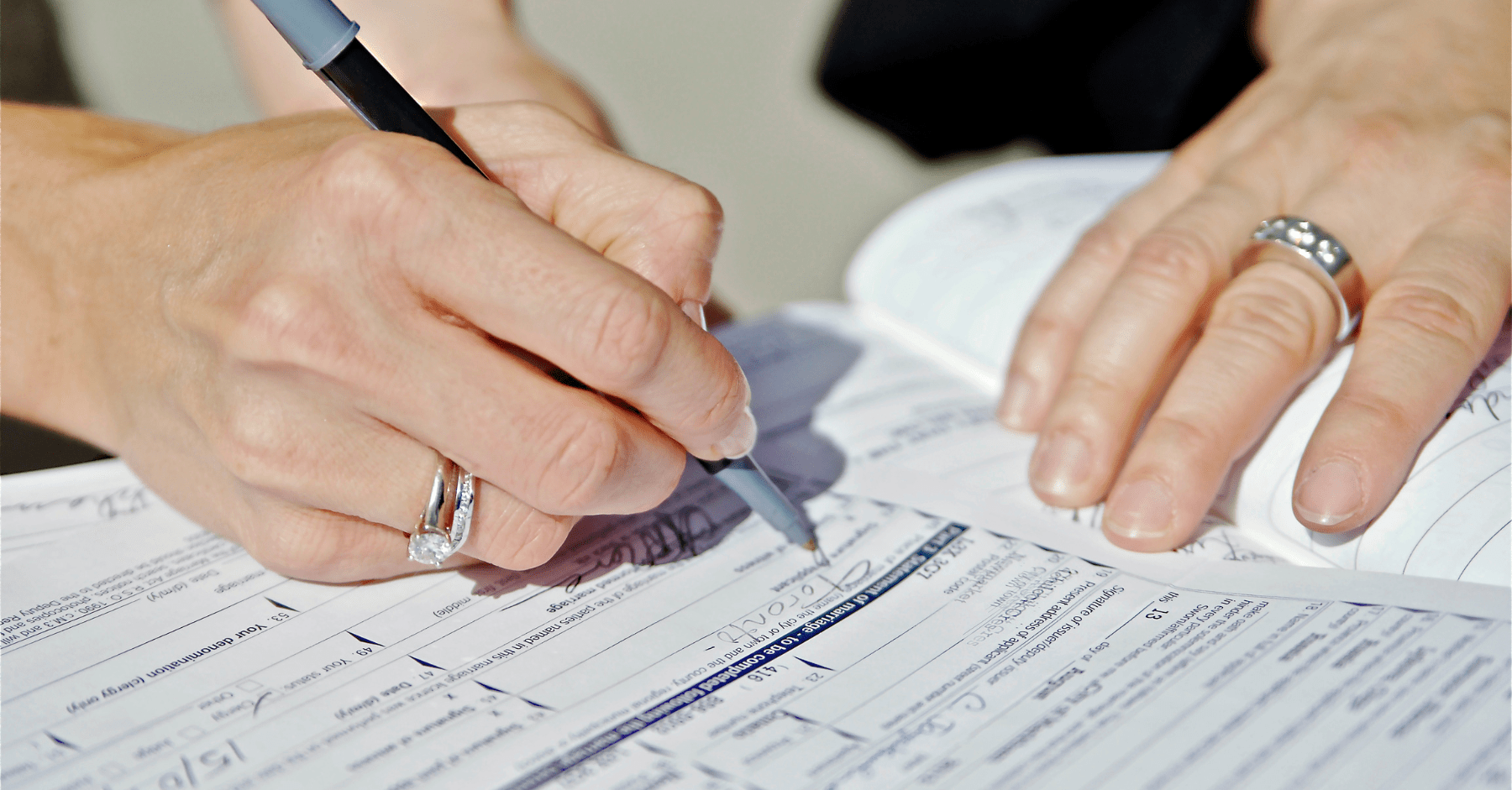How to Start and Register a Business in Minnesota: A Definitive Guide

- Summary
- How to Register a Business in Minnesota - Overview
- 1. Name Your Minnesota Business
- 2. Select the Business Structure You Want for Your Minnesota Business
- 3. Check From the Minnesota Secretary of State’s Website if You Have to Register Your Business
- 4. Get a Registered Agent
- 5. Create a Free Account With Minnesota Business and Liens
- 6. Submit Your Business Formation Forms
- 7. File for Taxes With the Minnesota Department of Revenue
- 8. Get Permits and Business Licenses for Your Business
- FAQs
- Final Thoughts
Businesses in Minnesota have a higher business survival rate than businesses in other US states - 55.3 percent, to be precise. That percentage was the highest recorded for any state between 2015-2020, and that was even a pandemic year.
So, if you've started a business in Minnesota, you've made a great choice. All you have to do now is to register your business and start serving.
The business registration process in Minnesota can be challenging, but it should be simple enough with a little direction. In this guide, we'll walk you through the steps required to register a business in Minnesota to make the process as hassle-free as possible.
How to Register a Business in Minnesota - Overview
-
Give your business a name
-
Select the business structure you want for your Minnesota business
-
Check from the Minnesota Secretary of State’s website if you have to register your business
-
Get a registered agent
-
Create a free account with Minnesota Business and Liens
-
Submit your business formation forms
-
File for taxes with the Minnesota Department of Revenue
-
Get permits and business licenses for your Minnesota business
If you want to learn all there is to know about registering a business in Minnesota, you’d have to dig deeper into this definitive guide. Ready? Let’s dive in.
1. Name Your Minnesota Business
You need a unique name to register your business in Minnesota, a name no other Minnesota registered business or legal entity has. Normally, you should have a name down direct from your business plan. You need something that packs a punch—something catchy yet sends out a clear message.

Here’s how you can come up with the perfect name for your Minnesota business:
-
Look at other business names in your niche.
-
Identify the story you want to tell.
-
Have multiple brainstorming sessions.
-
Find a thesaurus and dig up some words.
-
Try a business name generator like the one from Shopify.
If you’ve settled on a name that conveys your brand message, it’s time to start asking some hard questions. For instance, does the name make sense? Can it evolve? How easy is it to spell or pronounce? Is the name memorable?
Make these questions your checklist for finding the perfect name for your brand. Then, check the Minnesota state directories to verify that there’s no other entity with that name. Use the Minnesota business entity search tool for this.
If you have a name but aren’t ready to register your business, you can reserve it for 12 months. All you have to do is fill out the Minnesota name reservation form with the Secretary of State’s office. There’s a filing fee of $55 for in-person or online filings (expedited service) and $35 for mail filings.
Also, you can’t hold the name for more than 12 months in one filing, but you can always file another reservation which should secure the name for another 12 months.
There’s your own name to think about as well. If you’re the founder and owner of your business, the registration must reflect that. Business owners and entrepreneurs using the “doing business as (DBA)“ format where you register under another person’s name must file for a Certificate of Assumed name with the Secretary of State’s office.
This quote from the Minnesota Secretary of state explains it:
“For example, if partners John Grimey and Jerry Grungy do business as Grimey and Grungy Janitorial Service, they must file a certificate of assumed name. Filing is not required if they do business as John Grimey and Jerry Grungy Janitorial Service.
Likewise, if the corporation Able Building Company does business as ABC Construction, it must register the assumed name. There’s no requirement to file if it does business under the name Able Building Company since that is the company’s exact legal name.”
2. Select the Business Structure You Want for Your Minnesota Business
This is where the actual process begins. Business structures help you determine the next steps in registering your business and enable you to identify your liability, earning potential, and impact on your taxes. So, what structure will your business operate in?
You can register your business as a corporation, limited liability company (LLC), sole proprietorship, or limited partnership (LP) - each with its pros and cons. For example, if you go with the LLC business structure, you’ll be protecting your personal assets and getting more flexibility in your operations as a legal entity.
You can read for more information on the types of business structures in Minnesota.
3. Check From the Minnesota Secretary of State’s Website if You Have to Register Your Business
While these business structures are all recognized by the Minnesota Secretary of State's office, you don't need to register certain business structures. For example, sole proprietorships, general partnerships, and single-member LLCs are not required to register their businesses with the Minnesota Secretary of State's office.
Check the state website to know if you must register your business before moving on to the next stage. Even if you don't have to, it pays to consider registering your business as it comes with its own perks. For example, registering your businesses minimizes your tax and personal liabilities. It also legitimizes your business and makes you look appealing to investors (this is an important one).
Get your business off the ground with On-Demand Digital Marketing Solutions
4. Get a Registered Agent
A registered agent is a person or entity designated to handle all your legal and tax proceedings. You may know them as a resident or statutory agent.

Every business requires a registered agent as all communications from the state are directed to this person or entity. This agent must have a Minnesota street address and be over 18 years. If you’re thinking it, yes, you can be your own registered agent once you meet the requirements above.
However, many businesses hire registered agent services instead. These services take the agent load off of you so you can focus on growing your business. No need to keep a compliance calendar, make time for receiving legal documents, privacy intrusions, and whatnot.
Once you have your registered agent, it’s time to start registering your business.
5. Create a Free Account With Minnesota Business and Liens
You need an account with the State of Minnesota Business and Liens before you can proceed with your registration online. The Business and Liens platform is Minnesota's online space for business registrations. It’s nothing stressful, just get a username and password and you’re in.
Note that this step isn’t required if you register your business by mail.
How to Create an Account With Minnesota Business and Liens
-
Your first step is to create an account with Business and Liens.
-
In your new account, head to the “business filings“ section and select your preferred business structure.
-
You’ll be asked specific questions about your non-profit and professional status. Answer them and proceed to the next window.
-
Enter your business name and other required business information.
-
The next stage should be the application review. Verify the details you’ve provided and submit the application for a unique order number. Save that number and proceed to “Go to US bank.“
-
Set up an e-service account with your credit card information for future payments. You can skip this process by selecting “pay without registration.“ This allows you to pay a one-time fee without saving your information.
-
Print the confirmation page and record the confirmation number.
You’ll receive an email from the Minnesota Secretary of State’s office confirming your filing. That email contains a link to your filing saved in your account for 90 days.
6. Submit Your Business Formation Forms
The type of business formation form you submit depends on your business structure. For example, if you operate as an LLC, you’ll have to submit an Articles of Organization form to the Minnesota Secretary of State’s office. As with the name reservation form, you can apply online or by mail.
On the flip side, corporations must submit an Articles of Incorporation form to the state office and can also apply online or by mail. Find all the business forms required by the Minnesota Secretary of State's office from its general form bank—so to speak.
Ensure you follow all the requirements when submitting forms for your new business or nonprofit. The Minnesota state office rejects several documents for common reasons explicitly stated in the requirements.
Once you’ve submitted your formation form, you can start registering for taxes.
7. File for Taxes With the Minnesota Department of Revenue
The Minnesota state requires any business with a taxable presence to register for a Minnesota Tax ID Number and a Sales and Use Tax account. The basic measure of a taxable presence is a physical location in Minnesota and sales in Minnesota over the internet, mail, or telephone.

You need an Employer Identification Number (EIN) from the IRS before you can get a Minnesota Tax ID number. These seven-digit IDs monitor a specific business's income and sales tax records. Acquire an EIN from IRS and apply for your Minnesota Tax ID Number online to be on the right track of tax law.
For businesses in multiple locations, we recommend applying for one consolidated tax return from the IRS for all locations. This ensures you're not paying multiple taxes across the board.
The Minnesota Department of Revenue provides a complete list of business taxes and fees you should check. Also, you need unemployment insurance before registering employees and filing wage reports. The Department of Employment and Economic Development (DEED) covers unemployment insurance extensively on its website.
8. Get Permits and Business Licenses for Your Business
The state issues licenses on two levels: state and local. While the state doesn’t require certain businesses to acquire business licenses to operate in Minnesota, it’s best to get one. A business license certifies your expertise and competence in your niche.
The most efficient way to determine whether or not you need a state license is to check the Minnesota E-Licensing web portal. However, the process for a state license acquisition can get windy, so verify if you need one and start the process early.
Local licenses are often easier to get. All you need to do is register and make payment for processing. For large cities like Minneapolis, there are licensing departments to help you get your licenses, but business owners in smaller towns must see the city clerk.
Note that some businesses require federal permits and licenses to operate. Take a liquor manufacturing business, for instance. Federal bylaws govern liquor manufacturing, so you’ll need a permit from them.
The Small Business Administration (SBA) website has everything you need to know about obtaining federal permits for your LLC, limited partnerships, and more. You can also go to the FDA office in Minneapolis to learn more about business licenses specific to your new business.
Take a look at our growth-stage startup work
FAQs
How Much Does It Cost to Build a Startup in Minnesota?
The cost depends on the business model you choose for your business services. For instance, most formation forms have different costs, thus amounting to different overall costs. Then, there are business taxes to think about too.
Is Minnesota Tax ID the Same as Employer Identification Number?
No, your MN tax ID differs from your employer identification number (EIN). You need the EIN to apply for an MN tax ID.
Can I Change My Articles After I’ve Submitted My Formation Forms?
Yes, you can use an Amendments to Articles of Organization form to change the original content of your articles. For instance, if your Minnesota LLC grows into a corporation, you must update your Articles of Organization to reflect that change.
What Is the Tax Rate for a Small Business?
Again, your tax rate depends on your business structure. For example, if your small business is a sole proprietorship, you won’t pay the tax as a business entity. Instead, you’ll pay the tax on your state income tax as an individual.
Minnesota has a corporate income tax rate of 9.80%, which is a little high in comparison to other states. It also has a 6.875% sales tax, and some local governments have up to 2% additional sales tax. The state ranks as one of the worst states for taxes, with a 45th position in the 2022 State Business Tax Climate Index.
Can I Still Do Business in Minnesota if I Originally Registered Out of Minnesota?
If your company intends to "conduct business" in the state of Minnesota but was not originally formed there, then you must make sure to register for a Minnesota Foreign Qualification. In most cases, “conducting business” means carrying out activities like having workers in the state or maintaining a physical office.
Final Thoughts
Hopefully, you now have a good idea of how you can now register your new business on your own. While you may not need to, you can always visit the Minnesota Secretary of State’s website for more information. You can also call during business hours to talk to someone from the office.
If you still feel giddy and want to outsource the task, many business registration services are available to help you.

